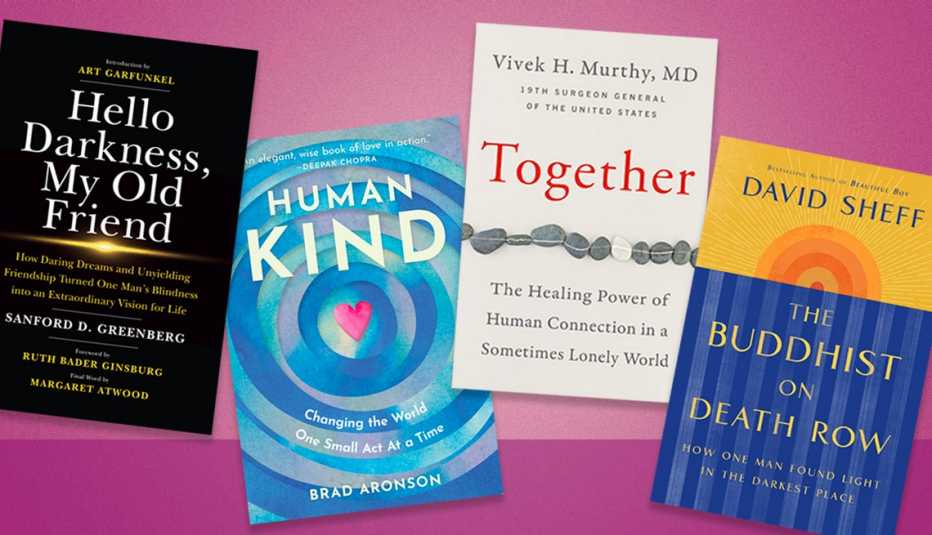Staying Fit


Do you ever just want to read something that will make you feel a little better about the world -— maybe offering evidence of human kindness or our ability to triumph over adversity? We've got four new or upcoming books that will do just that: One is about a man who's physically confined but learned to free his mind; another is a memoir by someone who persevered and found insight and success in the face of hardship; and the last two are about our natural desire for social connection and simple ways we can reach out to help others. Each is worth a read if you need a dose of hope.


AARP Membership— $12 for your first year when you sign up for Automatic Renewal
Get instant access to members-only products and hundreds of discounts, a free second membership, and a subscription to AARP the Magazine.
Hello Darkness, My Old Friend: How Daring Dreams and Unyielding Friendship Turned One Man's Blindness Into an Extraordinary Vision for Life
Sanford D. Greenberg
The author, now 79, lost his vision during his junior year at Columbia University, and rather than choose a quiet life in his hometown of Buffalo, New York, set off for a more difficult road, with the encouragement of a college friend, singer Art Garfunkel. This is his story about that early upheaval and subsequent years of graduate studies at Harvard and Oxford, then decades of hard work: He was a White House fellow in President Lyndon Johnson's administration, invented tools for the blind, operated several businesses, and more. Greenberg is now chairman of the Board of Governors of Johns Hopkins University's Wilmer Eye Institute and has challenged researchers by promising $2 million in gold to anyone who can find a way to end blindness.

































































More on entertainment
2020 Summer Preview: 12 Fantastic Books
Crime, history, whimsy, romance — there's something for every reader
AARP Bookstore
Find e-books, print books and free downloads on health, food, technology and more